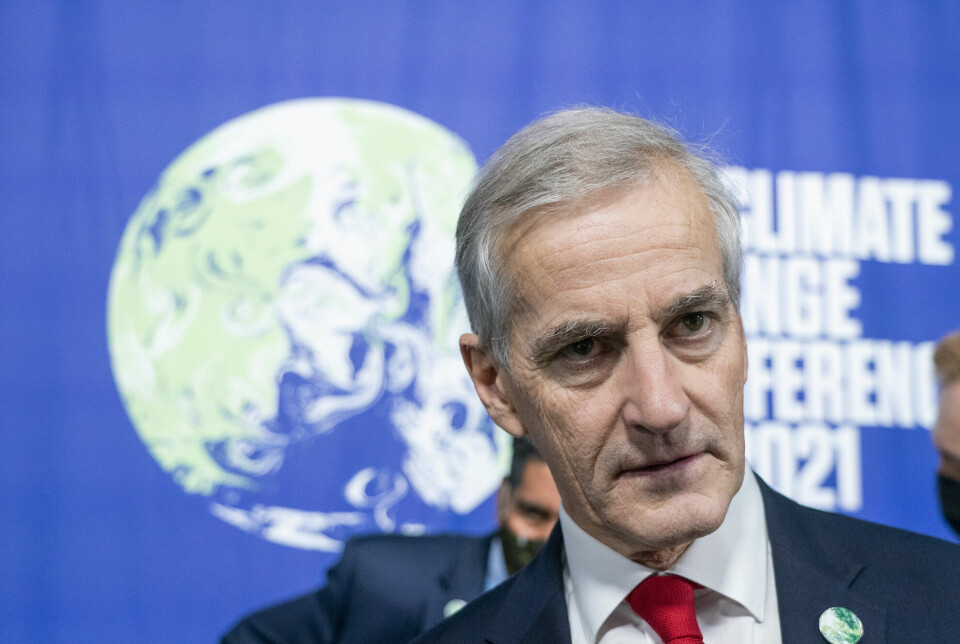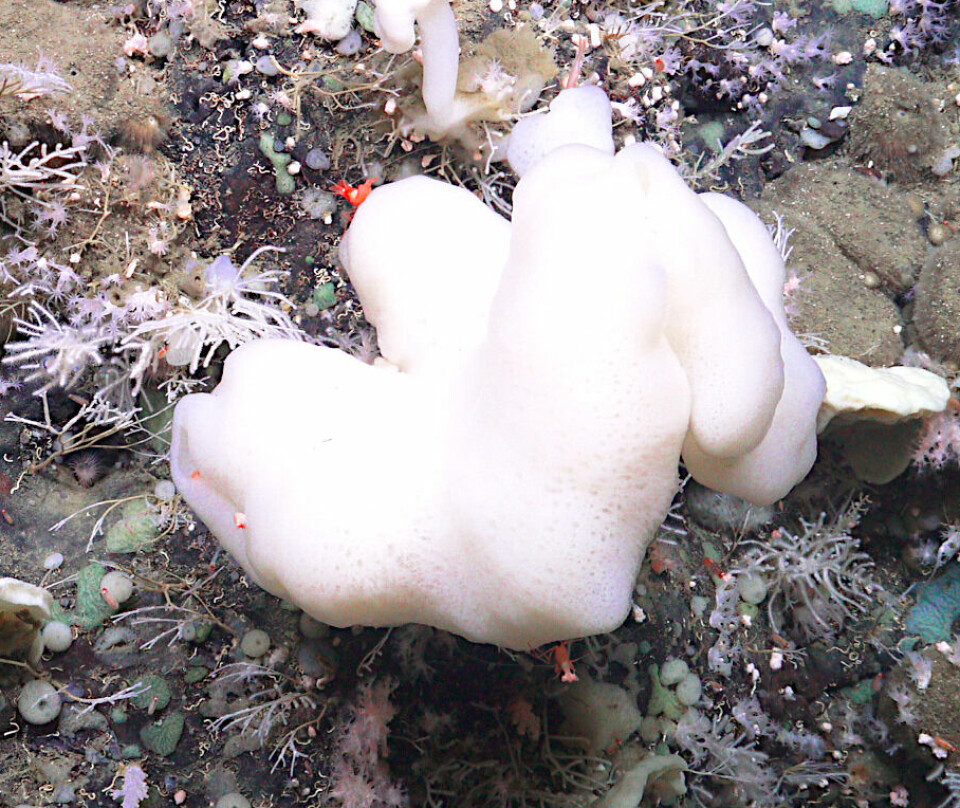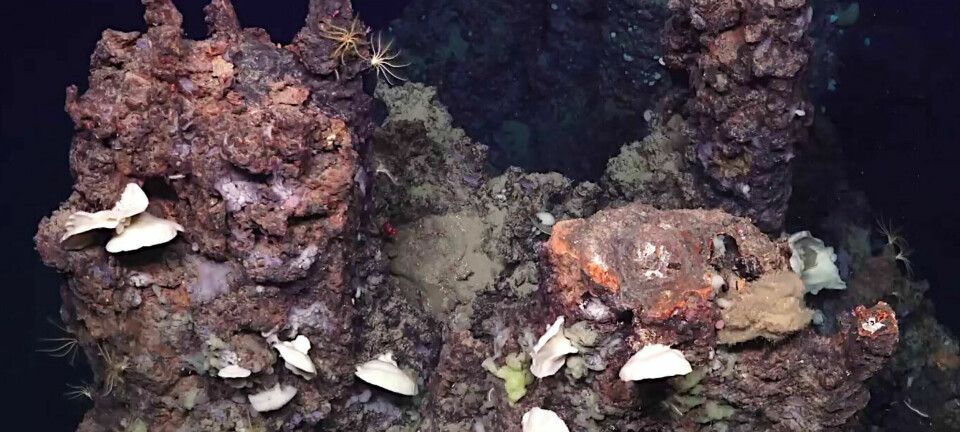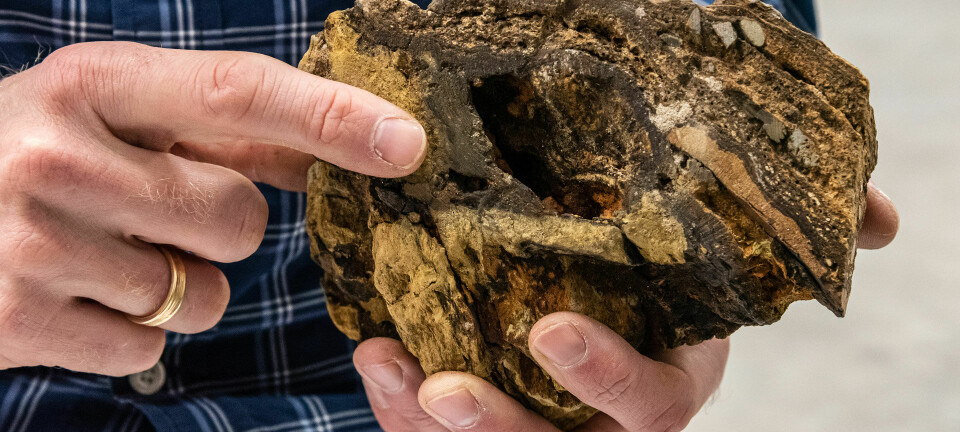
Norway strongly criticised in Nature editorial for approving seabed mining
The prestigious international journal claims that Norway is undermining the work of the Ocean Panel.
In a recently published editorial, Nature has criticised Norway's decision to open up for seabed mining.
The editorial argued that the decision undermines both the work to protect the ocean itself and the work of the Ocean Panel, which Norway leads together with Palau.
Nature calls the decision a breach of promise to the rest of the panel and to researchers.
The 18 countries on the panel all have large coastal and ocean areas. These countries govern roughly 45 per cent of all the exclusive economic zones on Earth, which is the marine area that individual countries are allowed to exploit.
Norway's Parliament must reverse its decision
Nature highlights Norway's role as co-leader of the Ocean Panel.
According to the editorial, some of the panel's scientific advisers are now wondering if other countries might be better suited to lead the Ocean Panel than Norway.
Most viewed
Nature also highlights a statement from Prime Minister Jonas Gahr Støre (Labour Party) in the introduction to the Ocean Panel's progress report in 2022, where he emphasises that "the Ocean Panel was established to lead the way, and we need to live up to this ambition."
“That is why Norway’s parliament must reverse its decision. If it is unable to do so, the government should acknowledge that the country has lost any claim to be an ocean-protection leader,” Nature writes in its editorial.
The journal writes that they have asked the secretariat how it chooses its leadership or whether other members can or will sanction against Norway, but that they have not received a response to this.
Many critics
Norway's Parliament voted on January 9 2024 to allow seabed mining. The Labour Party, Conservative Party, Progress Party, and Centre Party agreed to the decision at the end of 2023.
A number of researchers and institutions have warned that we do not know enough about the seabed and what minerals can be found there to allow mining.
Other researchers point out that there are large and valuable deposits in the ocean’s depths.
The EU Parliament has also strongly criticised Norway for allowing exploration for seabed minerals, according to the Norwegian Broadcast Corporation NRK.
“We have to stop a new environmental catastrophe before it begins, or Norway's name will go down in history as being the country that kicked off the destruction of the deep sea,” parliamentarian Mick Wallace from Ireland said during the recent debate.
A number of environmental organisations demanded in October 2023 that Støre and Norway must resign as leader of the Ocean Panel because of this decision.
Problems for sustainability goals
The Ocean Panel will contribute to "a sustainable ocean economy in which effective protection, sustainable production and equitable prosperity go hand-in-hand," according to the panel's website.
Nature points out that the countries in the Ocean Panel have committed to sustainable management of the entire area that is considered an exclusive economic zone.
The countries have asked for help from researchers to achieve this goal. Former Prime Minister Erna Solberg (Conservative Party) emphasised the importance of input from researchers in this Nature commentary from 2020.
But now, Nature argues that Norway is neglecting its responsibility, partly by not paying enough attention to researchers at key research institutions such as the Norwegian Institute of Marine Research and the Norwegian Environment Agency.
The Nature editorial reports that researchers were both surprised and disappointed by the opening. The journal writes that the decision creates problems in achieving sustainability goals.
“Researchers are not naive. They don’t expect politicians to take all their advice on board. But the political energy and enthusiasm for the panel gave scientists a real sense that this time, things would be different. In hindsight, signs to the contrary were already there by 2021. In January that year, the Norwegian government first announced its intention to mine minerals on the sea floor. And it continues to issue permits for offshore oil and gas drilling,” Nature writes.
The Ocean Panel includes important aquaculture countries with extensive coastlines, such as France, Canada, Chile, and Kenya.
Ministry of Foreign Affairs: Compatible with the Ocean Panel's work
“The fundamental principle of the Ocean Panel is the sustainable use and protection of the ocean’s resources. Norway does not act in contradiction to the principles of the Ocean Panel,” State Secretary Maria Varteressian (Labour Party) of the Ministry of Foreign Affairs writes in an email to sciencenorway.no.
“Sustainable and knowledge-based use of ocean resources is fundamental for Norway as a maritime nation. This has been at the core of our comprehensive ocean management for decades,” she writes. “Closing knowledge gaps about environmental impacts will be central in the ongoing evaluation of whether this is something Norway will pursue."
Varteressian points out that Norway is committed to preventing pollution of the marine environment as a signatory to the UN Convention on the Law of the Sea.
“We make particularly strong demands for accountability when we consider whether and how the extraction of seabed minerals can be done in a way that corresponds to the seriousness of both the climate and environmental crisis,” she writes. “That is why we are proceeding carefully and step by step – no extraction will take place until the substantial knowledge gaps have been addressed, and we have obtained thorough information on how activities can be carried out in a sustainable manner.”
———
Translated by Nancy Bazilchuk
Read the Norwegian version of this article at forskning.no








































